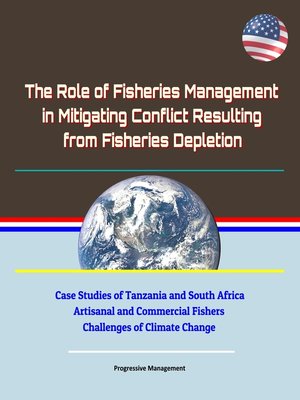The Role of Fisheries Management in Mitigating Conflict Resulting from Fisheries Depletion
ebook ∣ Case Studies of Tanzania and South Africa, Artisanal and Commercial Fishers, Challenges of Climate Change

Sign up to save your library
With an OverDrive account, you can save your favorite libraries for at-a-glance information about availability. Find out more about OverDrive accounts.
Find this title in Libby, the library reading app by OverDrive.



Search for a digital library with this title
Title found at these libraries:
| Loading... |
This informative report from March 2019 has been professionally converted for accurate flowing-text e-book format reproduction. This study examines the effects of management style on conflict between fisheries users, looking at Tanzania and South Africa as case studies. Research indicates that management programs that incorporate local communities while retaining a level of national support are more likely to be successful in enforcing rules and regulations, promoting sustainability, and reducing incidents of conflict between users. Nationally based programs that exclude local communities from management roles risk alienating local fisheries users and increasing violations and conflict. In a world of drastically expanding fisheries exploitation, management style will become increasingly important in ensuring that competition between users remains peaceful and fisheries resources are available for continued use.
This compilation includes a reproduction of the 2019 Worldwide Threat Assessment of the U.S. Intelligence Community.
In Africa specifically, many coastal communities are particularly vulnerable as a result of their poor economic status and lack of alternative sources of income. The consequences of this clash in resource demands may range from famine to domestic insecurity as starving and unemployed populations seek alternative means of survival. Fragile states, lacking financial, political, and security resources face increased domestic strain from displaced and starving populations unless effective management techniques can be implemented in the near future. Understanding the root causes of conflict, such as degradation of a key natural resource, will enable local governments and the international community to identify at risk regions and sources of conflict and to implement effective policy responses. The nature of commercial fishing and global trade makes regional fisheries degradation a potential source of international conflict, as well. The worldwide impacts of resource constraints have already been seen in the piracy epidemic that started in Somalia and impacted global trade. Numerous scholars have observed that Somali pirates were originally fishermen trying to defend their livelihoods and primary food source against illegal commercial fishers who were taking advantage of uncontrolled waters and marine stocks after the fall of the Somali government. While this conflict started as a resource and livelihood competition between artisanal fishers and large, foreign commercial entities, it ballooned into a security crisis on a global scale. This case provides an illustration of resource constraints leading to security crises on an international scale.






